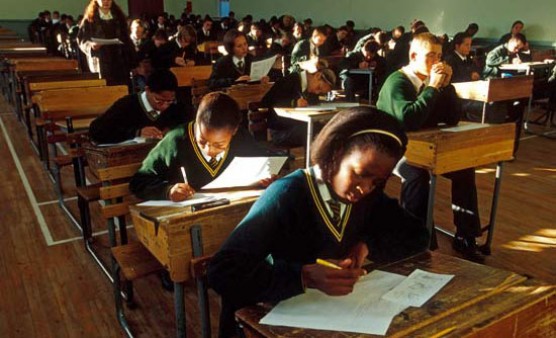Nelson Mandela once said that, “education is the most powerful weapon we can use to change the world.” The first time we are introduced to formal education is when we set foot into primary school. Through the trivial math and reading lessons, these school years are not simply eight-hour days. Rather they are the grounding work of our children’s education. They become the foundation for their personal and professional development and eventually the ultimate equalizer in changing the morale compass for our children in becoming responsible, respectful, and successful citizens within our country. In South Africa, we are very much invested in our children’s education and their future. In fact a big share of its Gross Domestic Product (GDP is invested on education than any other country in Africa. However even with this investment, even with this interest, studies have shown that performance levels are lower than many other countries in the region. In fact, there has been a recent trend in drop out rates, especially in students early years within secondary education. So the question comes down to this, why is this happening? What is happening in our education? What will happen to our children’s futures?
There are many factors that can be implemented in this trend no matter what country you go to. The lack of discipline, lack of interest, poverty, poor academics, under-privileged resources, and under-represented areas are just the few that scratch the service of education inequality. That it why it is no surprise that monetary economical investment is not just enough in keeping our children in school. Rather, we need to take into consideration the social factors that impact their days. We need to dig deeper and understand what our kids need to succeed. Questions such as: what resources are they missing, do they have quality teachers, and are the teachers and students held accountable for their work are all hard hitting and pressing questions we need to stop avoiding and start answering when it comes to our educational youth. Only then are we able to make that transformative action we want to see in our students.
Now action is, as stated, more than just giving a check to an organization. It is investing in our youth’s needs and understanding their overall problems. Of many big business corporate companies, Atlas Finance has done incredible job investing in its community. It does not simply hand off a check to a non-profit just to look like the good guys. Rather this company and the founder and president, Jack Halfon, likes to be involved in the overall process. In the past few years, Jack and Atlas Finance have partnered with the Chabad House in various projects helping the communities in Johannesburg, South Africa. Within a few short years, they were able to build two well-functioning, well-resourced libraries through the Grow Your Life campaign. Giving a child a place to truly grow academically is absolutely incredible. The goal behind this was to respond to the known problems and give the students a safe place to develop their voice that will allow them to be academically successful, critically conscious, and forces of change within their communities. Yes, this is just a library, but to these kids, it can sometimes be the only place where they can find a book. Here, they will be able to become forces of change within the communities. Here they will be able to gain the knowledge and foundation to be academically successful within their schools. If you want to be a part of the change, visit the Chabad site and look into the programs of how you can be involved. Make the impact today!

